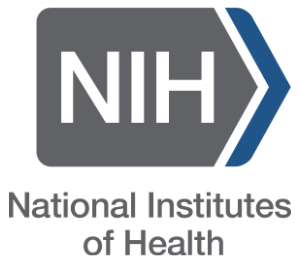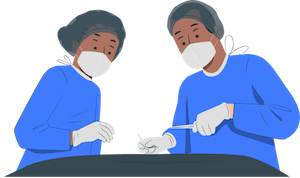 |
Let’s Get Counting: Reporting Research Animal NumbersIt’s that time of year again! The UW must report its annual usage of animals in research, teaching, and testing to regulatory and accrediting agencies. Use this online form to report the number of animals used between October 1, 2023 – September 30, 2024. The number of animals used includes those used for experimental and teaching purposes, as well as animals generated as part of a breeding program (e.g., animals of incorrect genotype) or housed during the reporting period but not yet used. Responses must be received by November 1, 2024. Questions? Reach out to oawrss@uw.edu. |
 |
Be Aware: November is a Busy Month for OAW!OAW staff, DCM and WaNPRC veterinarians, and other members of our animal care and use program will be involved in multiple conferences and workshops coming up in late October and November, which may impact review times. Please submit protocol items as early as possible during this period to help us prioritize and process items more efficiently, and minimize any potential delays. Triennial Reviews should be submitted at least 2 months prior to the protocol’s expiration date. Amendments should be submitted at least 6 weeks prior to when approval is needed, or as early as possible. If you have a protocol item that is time-sensitive, be sure to let OAW know by contacting your OAW Liaison and/or leaving a comment in HoverBoard when you submit the protocol item. Association of Primate Veterinarians (APV) Annual Workshop, October 30 – November 2. American Association for Laboratory Animal Sciences (AALAS) National Meeting, November 3-7. Public Responsibility in Medicine and Research (PRIM&R) Annual Conference, November 17-20. |
 |
HoverBoard DowntimeAs of September 18th, Hoverboard and AOps will undergo maintenance every Wednesday at 10:00 PM PST and the site will be inaccessible. The maintenance will last about an hour. Please plan your work accordingly and reach out to oawrss@uw.edu with any questions. |
|
|
Repair SurgeriesAs with all experimental procedures, surgical procedures and anesthetic events need to be described and approved in your IACUC protocol. This includes surgeries that are needed to repair a surgical wound. The IACUC Policy Surgery Training Requirements defines the term surgery as “Any procedure performed using instruments on a living body that involves incision, excision, or suturing.” If a wound dehisces and requires reclosure, this meets the definition of surgery and must be approved on the IACUC protocol, including a description of the associated anesthetic and analgesic plan. A veterinarian must be consulted prior to performing a surgical repair. Personnel performing a repair surgery must meet all surgery training and certification requirements described in the above policy. For additional information about surgery training requirements, visit the CLATR website or email clatr@uw.edu. |
 |
Podcast: New NIH Grant Review ProcessNIH is simplifying review for most research project grants starting in January 2025. Learn more about the 3 new review factors, what is and is not changing, and available resources in this “All About Grants” podcast episode hosted by NIH. |
| Environmental Health and Safety | |
 |
October is Biosafety MonthEH&S encourages you to set aside some time for laboratory “self-care” or a spa day! A clean and tidy lab helps ensure a safe and healthy work environment and maintain the quality of research samples. Dispose of expired or unnecessary items. Clean out freezers and refrigerators. Decontaminate benchtops, equipment and biosafety cabinets. Maintain a clean environment. Learn how to reduce contamination, accidents and visual fatigue. |
